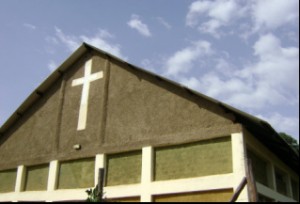 “I was in the Spirit on the Lord’s day, and heard behind me a great voice, as of a trumpet,” (Revelation 1:10).
“I was in the Spirit on the Lord’s day, and heard behind me a great voice, as of a trumpet,” (Revelation 1:10).
The prophet John was in the Spirit of God on “the Lord’s Day.” This is actually the only text in the whole New Testament that uses the precise phrase, “the Lord’s Day.” It is the only one! But, what does it mean? Well, obviously, it means that the Lord had or has a special day! It must be a day that is considered above all others! Obviously, it’s “the Lord’s Day.” It’s not just any other day. It’s not just some common day. It’s an important day. It’s a distinguished day.
The next question is, “Which day is the Lord’s Day?” I mean, if the Lord has a very special day, then shouldn’t we know which day it is? We’re going to go directly to the Scriptures, the inspired source that is “…profitable for [every] doctrine…” (2 Timothy 3:15-17), for our answer!
The tradition of calling Sunday “the Lord’s Day” has been a long-standing tradition among many Christians. But where does that idea come from? We don’t have much further to look than the Counsel of Laodicea in A.D. 365. [See the longer version for details]. If any had used the term earlier, it certainly wasn’t found in the Bible. There is no text to be found that ever calls the first day of the week (or Sunday) the Lord’s Day! Search the Bible from cover to cover, but you won’t find it! Is that surprising to you? It’s amazing how the assumptions of men can be so greatly wrong. It’s shocking and you just wonder, “Why didn’t someone tell me already?!” Or, “Why didn’t I know this?” Well, today I’m telling you. But, don’t just take my word for it. You go and check your Bible. Then you’ll know firsthand!
So, what does the Bible say is “the Lord’s Day?” Genesis 2:2-3 say, “And on the seventh day God ended His work which He had done, and He rested on the seventh day from all His work which He had done. 3 Then God blessed the seventh day and sanctified it, because in it He rested from all His work which God had created and made.”
God rested on the “seventh day,” then He blessed it, then He made it holy (setting it apart for a holy use). He rested on it, He blessed it, and He made it Holy! That’s His day! The Ten Commandments in Exodus 20:10 say, “…the seventh day is the Sabbath of the LORD your God: in it you shall not do any work…” The seventh day is God’s Sabbath—It’s the Lord’s Day! Isaiah 58:13 says, “…turn away your foot from the Sabbath, from doing your pleasure on my holy day; and call the Sabbath a delight, the holy of the LORD, honorable…” Sabbath is the Lord’s Holy day! We should delight in the Lord on that day and rest from our work. Jesus said that He is “the LORD of the Sabbath” (Matthew 12:8; Mark 2:28; Luke 6:5). The seventh day Sabbath is the Lord’s Holy day—Saturday! Check and see! That’s the only “Lord’s Day” that the apostle John ever would have known or observed as holy.
Let us now consider our life options in light of this truth. We have now a choice to make. Will we follow God’s laws or mans? Will we follow the Bible’s teaching—God’s Holy Word, or the traditions of men from the decrials of their various counsels? This choice is ours today. In the words of Joshua, “…as for me and my house, we will serve [follow] the Lord” (Joshua 24:15). How about you?
[originally posted on our old CCM blog, Dec. 9, 2012]
